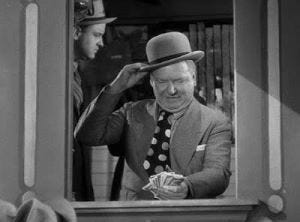Money

Money is a political construct. It doesn't matter if it's controlled by government or in some brave new world, a corporation. The key power of any money system is who controls its creation. The ability to create money has never been democratic.
Currency is the medium by which value in any money system is transferred. A currency can be pretty much anything and has pretty much been everything. Shells, knots on a string, various metals—copper, silver, gold—beads, horses, paper, or even a paper or electronic entry in a bank's ledger, over the course of the history of money, all were currencies.
Back when currency was specie, a metal of some sort, the money supply was constrained by both the actual supply of the metal and the minting of coins. When the Romans conquered other peoples, they'd forbid them from minting their own currency. Everyone needed to use the denarius, minted by the Romans. There are still ten or so countries, long ago once part of the Roman empire, using a “dinar.”
Money was always “exogenous” to, outside of, the economy. Currencies had no underlying connection to the economy, it was only a means to transfer value. At its foundation, the idea of money value is a belief, directly tied to the collective faith in or the perceived power of the political system.
In the last couple hundred years, with the development of modern banking, money's value became connected to the greater economy. This was done through the loan process. By a simple notation on the banks ledger, each new loan was also accounted as new money. The value of money became directly tied to the value of loans. A good loan for any given economic activity, created good money.
Giving the banks authority to create money, thus money tied to the economy, were significant and the only innovations in the history of money. So, it's certainly interesting, so called crypto-currencies, endlessly promoted as money innovation, are actually a step back to money's exogenous past.
Crypto comes out of military cryptography, encoding and deciphering information so it can be secretly passed. Sender and receiver have a “key” so the information first can be encoded by sender and then deciphered by receiver.
Crypto-currencies are software. Digital ones and zeros coded into a specific order, then locked into that order. Innovation? Every penny you presently have in a bank account is code on a spreadsheet. So, currency as digital ones and zeros innovative? Not so much.
Better is the creation process, using bitcoin as an example. It's creators seem to have been gold-bugs. They did not copy modern banking's connection of money to the economy, but, and this is most amusing for self-promoted innovators, adopted the ancient value of “mining.” Bitcoins are mined by “opening and closing” transistor gates, at ever greater numbers and energy usage. Call the mining metaphor inane, or better, reactionary thinking from someone who never understood money. If you look at the the hippie-libertarian-tech mindset that created bitcoin, it makes perfect sense. An apolitical lot, who believe they can code away the social instinct of homo sapiens – the perpetual juvenilia of America's last couple generations.
Best, there's only supposed to be 21 million bitcoins in total, which isn't enough to run the budget of a small town. I was recently told there would be currencies built atop, like a bitcoin gold standard, which in my mind, or mine, sort of undermines the whole idea. But then I haven't made billions of old currency huckstering a new one.
Which gets back to old money and here we have real problems. Trillions upon trillions of dollars created in recent decades to avoid dealing with ever massive amounts of bad debt, thus bad economy. The old money system is once again exogenous to the economy, its ability to provide value, impaired at best. Money is a political construct, this doesn't say anything good about our politics.
Subscribe to Life in the 21st Century
History, Science, Energy, Technology, Environment, and Civilization




